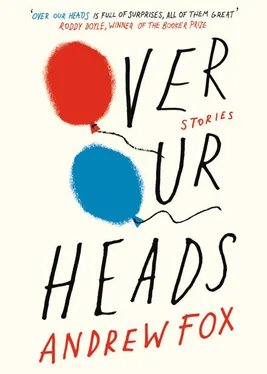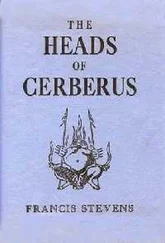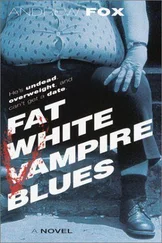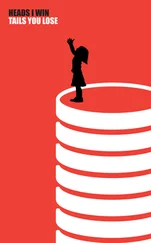‘Briefly,’ I said as I reached into her closet for the suite’s lone ironing board. I set it up at the foot of her bed and spread out a shirt.
Already, Dani had hung the outfits she’d spent the guts of the past week devising: a tweed blazer over a vintage T-shirt; a white blouse paired with ripped black jeans; a navy polo neck and a charcoal pencil skirt. Beneath each was arranged a pair of shoes: tan derbies, white Chuck Taylors, brown ballet pumps with a bow. And on the shelf above them were three dossiers culled from her binder, with many tongues of Post-its hanging from their edges.
The next morning, and for two mornings following, we toured libraries and lecture halls. Dani asked questions about borrowing limits and digital resources before heading off to meetings she’d scheduled with professors. Each time I stood for a moment to watch her walk away, her dossiers hugged to her chest, and each time I felt proud and vindicated for having raised a girl so capable. Never at her age would I have thought to arrange meetings like these, much less imagined how to go about it, or what to say if I had.
At university, it had felt as though my classmates and I belonged to separate worlds. They, it seemed, had been bred to feel comfortable eating in wood-panelled dining halls and drinking in cricket pavilions, whereas I had needed to work hard to fit in, and never did. I had earned the right exam points but not at the right secondary school, had honed the knack for argument but couldn’t shake off my accent. From day one, I suspected — and when I graduated with honours but no offers, while they strolled towards the King’s Inns with 2.2s, I knew — that I would never make it in the law in Ireland. I thought that America might be big enough to fit me in, applied to a dozen places and was rejected by all but one tiny school in Maryland. When I got there I found the same entitlement, the same unwelcome. And I found those things at the non-profit that gave me my first job, in the courtroom where I tried my first case, at the firm where I made my first million. Now Dani, I thought, had a chance to skip all that.
In the afternoons, while I read and wrote emails, she called Elaine and reported back to her about faculty ratios or alumni networks or internship opportunities. To me, she talked about the things that really mattered to her. Trinity, she said, was all city life and storied marble eminence (not to mention shoulderless boys with nicotine fingers and the poet’s stare): she loved it. DCU and UCD were suburban, corporate, anonymous (also full of engineers and farmers; also much, much cheaper): she didn’t love them.
But more importantly, to me anyway, she seemed really to love the city. We toured the Castle and the GPO, Christ Church and Kilmainham Gaol. I relived the mix of brief awe and enduring boredom that I once had felt on school trips, while Dani asked excited questions of the tour guide or, once, corrected him. After dinner, we people-watched from cafe tables and (Dani swore she wouldn’t tell her mother) swigged Guinness in beer gardens, in alleyways or on rooftops. I felt the urge to list for my daughter the ways in which the place had changed — but I stopped myself. What, really, would have been the point? And how much, when it came down to it, could you really trust your memories of any time or place, especially your youth or, most especially, your home?
But some things Dani insisted on seeing for herself. And so, after picking up the rental car the night before we left for Galway, we headed out for a quick visit to the house where I grew up. The road was dark and lit in yellow pools. Traffic was sparse. The sky was starless, the moon a sliver.
‘You know,’ I said, ‘this is only the second time I’ve driven in this country.’
‘Did you know that settlement at Coolock dates back over three thousand five hundred years? A Bronze Age burial site has been excavated and dated to around 1500 BC.’
‘Since you ask,’ I said, ‘I got my licence in the States so I could get your mother to the hospital in the event that you came early. I was twenty-eight, twenty-nine? Course, the first time, that is, my last time here, I was heading to the same —’
‘What did she look like,’ Dani said, ‘your mother?’
‘Your grandmother,’ I reminded her. ‘Do you not remember?’
‘I was, like, a baby when she came to visit?’
‘She looked … she modelled herself really, I think, after Maureen O’Hara. You’ve seen Kangaroo ? Or The Quiet Man ?’
‘No.’
‘My God. What do they teach you in that school?’
‘Algebra, Macro-economics, Japanese, Romantic Poetry …’
‘All right,’ I said.
‘… Enlightenment Dialectics, Daoist Philosophy, the Peloponnesian War —’
‘She looked,’ I said, as we turned on to the Malahide Road, ‘glamorous. Or she tried to, anyway. Always had her hair set and her clothes well cut and spotless. She had this one coat, I remember, with these toggle buckles and a Nehru collar. She must’ve worn it nearly every day for twenty-five years. White! But she was careful with every little stain, stooped at the sink with her bleach and her rubber gloves at night, got it dry-cleaned every year at Easter. And she looked … I don’t know what she looked like. She was a knock-out.’
I spun us on to the Tonlegee Road at the Cadbury’s factory and we wound through the dark estates. Outside, fronting an unlit sports pitch, the old grey-speckled three-over-two still stood. Its windows had been double-glazed, its porch closed in, its driveway cobbled and occupied now by a black Ford registered during the previous year. I pointed to the window above the driveway.
‘I slept in there,’ I told Dani. ‘And Mam and Dad,’ I pointed to the window next to it, ‘were there.’
I remembered the fall-apart wardrobes that the old man had built himself, the yeasty smell of the little kitchen downstairs. I remembered my last Christmas home, when my cousins had laughed at my wingtips and I’d told my mother I’d met someone. She was bent at the sink, her shoulders hunched for a painful moment, and when she turned her lip was bitten but thrust towards me in challenge. ‘Just be careful,’ she’d said and returned to scrubbing her coat.
And suddenly I felt an urge to go and knock on the door and ask if we could come in. I remembered the man to whom I’d sold the house those years before, recalled his jeans and his stubbled cheeks and his running shoes. I imagined his vague recollection of me, his suspicion of my return and the charm I would use to conquer it. I saw through his eyes the wholesome picture my daughter and I would present, and knew that he would be powerless to resist us. Already, I felt the eerie, dreamlike state into which I would enter in the hallway, the thrill of recognizing things that hadn’t changed and the poignancy of finding things that had. The whole experience, I imagined, would be satisfying in the same way that pressing on a bruise is satisfying. But more than that, I felt a sense of opportunity, a chance to create a strong memory in Dani’s mind, something she would return to when she was in this country by herself, or alone in the world once I was gone. I told her my plan.
She watched me with patience, her eyes glazing, clearing. When I was done, she resettled her glasses on the bridge of her nose.
‘No,’ she said. ‘I don’t think that’s a good idea.’ She knitted her hands in her lap, her break-it-to-him-gently pose. ‘Look, if you don’t go in, then in your mind it could always be like it was. But if you do, it either will be or it won’t be, and you’ll know for certain — and isn’t that so much worse?’
She breathed slowly and with some effort. I looked up at the house. Its windows were still. I started the engine and pointed us back towards the city.
Читать дальше












